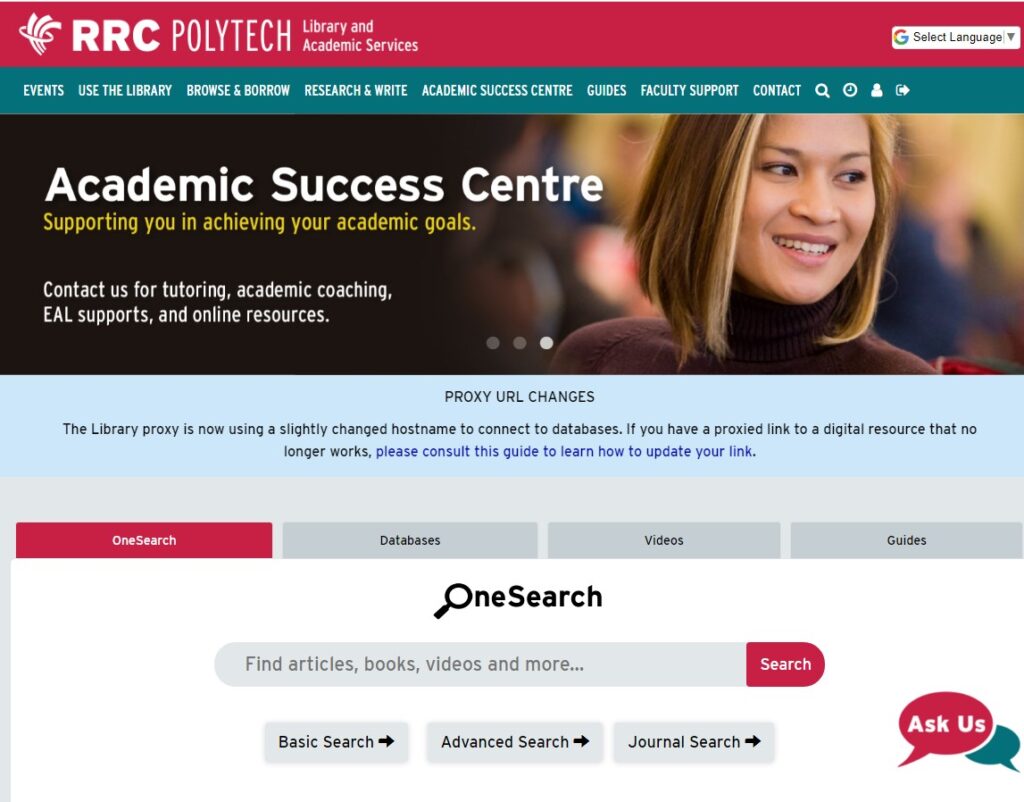Discovering How Faculty Use the Library and Academic Services Website

Since we had redesigned the Library and Academic Services website last summer, it was decided that user testing would tell us whether our new site design was effective.
Last fall, we arranged for a small sample of students to review and critique the site. This spring, we decided to do the same using a group of Faculty.
In our site redesign we used principles of user centric design, attempting to create a site for our users, who were defined as two personas: “Average Student User” and “Average Instructor User.”
This particular test targeted instructors, and would evaluate our “Average Instructor User” persona.
Our Academic Support Coordinator, Melissa Coyle, asked for volunteers via Staff News. Not sure how much interest she would generate, she was pleasantly surprised to receive a number of volunteers, all Instructors and EAs, and from different programs and areas of the college. Choosing five candidates that represented an even cross-section of our college, Melissa went ahead and administered a test, one-on-one with each volunteer.
We would like to take a moment to thank the staff who volunteered to take our test. Without you, this entire process would not have been possible. Bravo!
Using a list of twenty-one tasks, consisting of scenarios and questions that could be discovered on the Library and Academic Services website, Melissa monitored the candidates progress in browsing the web pages, taking notes as to the success or failure of the candidate in resolving each task.
It is true that you do not know how easy or hard a designed task might be until you observe an average person attempt to complete it. Melissa did this through a WebEx session with each candidate. It is an ingenious way to conduct a usability test, and Melissa was able to adeptly conduct the testing, all the while taking note of the challenges met by the users.
In case you were not aware, the Library and Academic Services website is quite deep, and contains information on services offered by the Library, Academic Success Centre, and Assessment Services. Some of the tasks were easily resolved by the users, such as:
- Where would you go to find the hours for NDC and EDC campus?
- You are browsing the LAS website and want to ask a Library staff a question. How would you ask a question or request help?
- You are an instructor who would like to schedule an in-class Academic Skills workshop for your students. Where would you go to request this workshop?
- You have a student in your class who you would like to refer for tutoring. What instruction would you provide the student to request or connect with a tutor on their own?
- You are looking for information about Copyright, where would you go to find this?
Other questions posed to be more difficult for the users, indicating adjustments may be necessary on the web site:
- You are an instructor who has assigned a research paper to your students for a specific topic and would like to reserve a selection of books for your class at the Library – how would you do this?
- You have a student who is unfamiliar with LEARN and struggling to access course materials, submit assignments, and participate in online discussions . You would like to connect them with a tutor for help – how would you do this?
- You’d like to share some self-directed resources with your students with a focus on study skills. Where would you find these?
Clearly we have more work to do to improve the Library and Academic Services website. In fact, we recognize that a website must be continuously managed, meaning changes are always necessary, and future testing will always be a smart step.
In addition to areas of improvement, the testing has shown us that our process of user-centric design is working. For the most part, we discovered that our Instructor persona was able to use the website to complete the tasks built into the user-interface.
When we build a web site, we think we can do plenty by considering how users will interact with the site. However, until we have some real users try the site, and we watch how they do it, we cannot know the whole story.
So, take our advice. Arrange for a few users to test your web site!
Mark Nelson
Library Systems Specialist
Red River College Polytechnic
